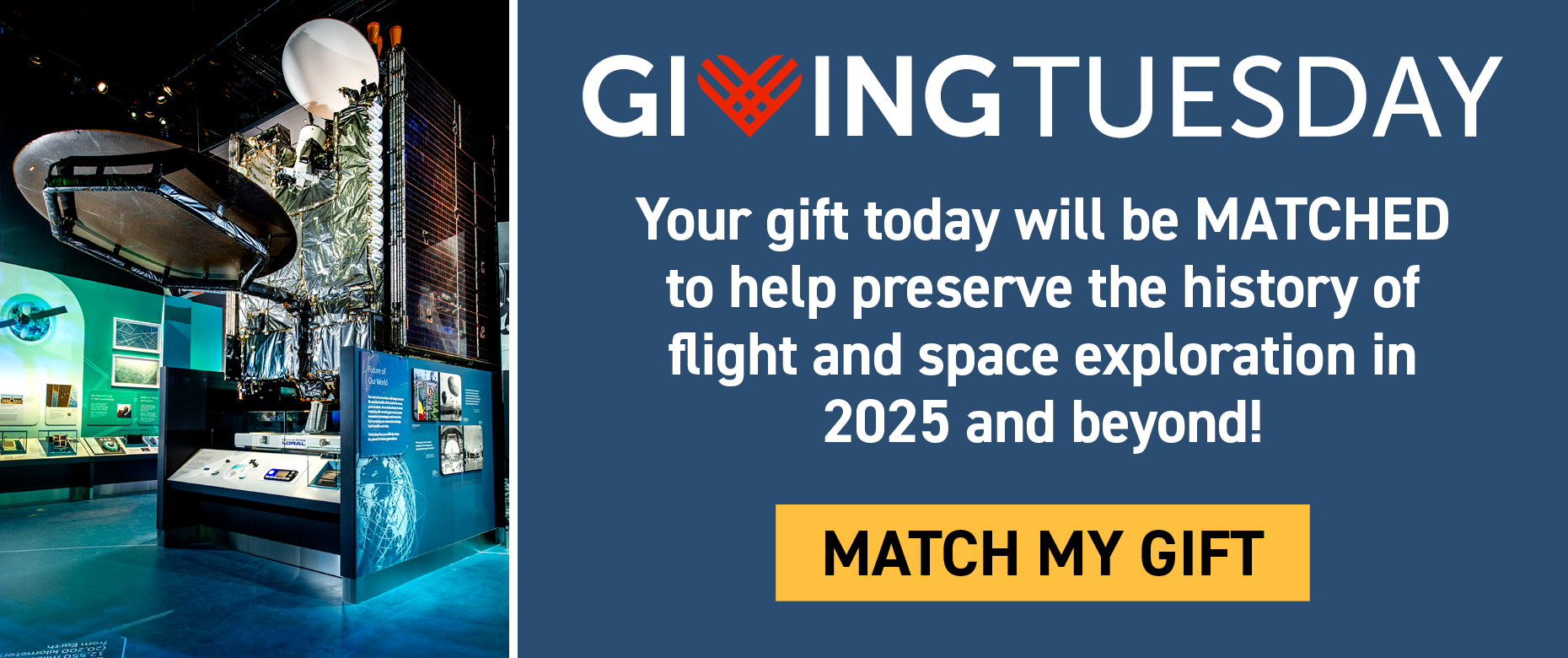All Stories
Showing 1681 - 1690 of 1717
It was about twenty years ago, but no one in the Museum’s Archives Division can now remember who first asked us the immortal question - what‘s the wingspan of a Lockheed P-38 Lightning?
Most of us have a "junk drawer" that contains, among other oddments, stray keys. Restoration specialists working on the Douglas World Cruiser "Chicago" recently found two such strays in the aircraft.
The docents at the Udvar-Hazy Center enjoyed meeting a special visitor on May 16, 2009. His name is Jim Henry, a WWII naval aviator. Henry was one of the pilots that flew the F4U-1D Corsair that is on display at the Center.
"You wrote a book about Tysons Corner? Isn't that a shopping mall?"
Early in the morning of July 25th, 1909 - a hundred years ago - Louis Blériot (1872-1936) crossed the English Channel, a distance of 22 statute miles (36.6 km) from Les Barraques (near Calais) to Dover.
This summer, the world is marking the 40th anniversary of one of the greatest milestones in aerospace history, and one of the most remarkable of all human achievements—the first Moon landing by Apollo 11. But the summer of 2009 also marks another meaningful event in aerospace history. It is the centennial of military aviation.
Last week we began evaluating the first of four new computer interactives that will go into the upcoming “Moving Beyond Earth” exhibition.
When the Apollo 11 spacecraft lifted off on July 16, 1969, for the Moon, it signaled a climactic instance in human history. Reaching the Moon on July 20, its Lunar Module—with astronauts Neil A. Armstrong and Buzz Aldrin aboard—landed on the lunar surface while Michael Collins orbited overhead in the Apollo 11 command module. Armstrong soon set foot on the surface, telling millions on Earth that it was “one small step for [a] man—one giant leap for mankind.” Aldrin soon followed him out and the two planted an American flag but omitted claiming the land for the U.S. as had been routinely done during European exploration of the Americas, collected soil and rock samples, and set up scientific experiments. The next day they returned to the Apollo capsule overhead and returned to Earth, splashing down in the Pacific Ocean on July 24.
Regular summer visitors to the National Air and Space Museum are familiar with the Museum’s popular event, Mars Day. This year, Mars is taking a backseat to allow us to honor the 40th Anniversary of the Apollo 11 lunar landing with Countdown to the Moon Day.
What will the astronauts who return to the Moon with NASA’s Constellation program drive? I had a chance to find out last October as a member of NASA's Desert Research and Technology Studies (Desert RATS) during the field test of the Lunar Electric Rover (LER) at Black Point lava flow in Arizona.
